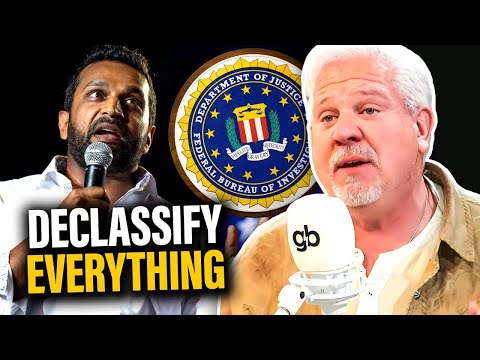**Unveiling the Secrecy: The Calls for Transparency in High Places**
In a world where secrets seem to thrive behind closed doors, a recent discussion on a conservative news channel has stirred up a wave of curiosity. The topic at hand? The infamous black book of Jeffrey Epstein, a name that has come to symbolize both mystery and a troubling lack of accountability. With the FBI holding the reins to this treasure trove of names and information, many are left pondering why the public remains in the dark. The conversation sparked a flurry of thoughts about government transparency, elitism, and the undeniable influence of money in law enforcement.
The conversation was electric with talk about what could be found in Epstein’s so-called black book. Right at the forefront was the suggestion that this powerful piece of evidence is not just sitting idly in an archives box. Oh no! It is under the direct control of the FBI, where it appears to be tightly locked away. The worry is that the names within that book aren’t just innocent individuals having brunch with a rich guy; they could be connected to some of the most significant political and financial powerhouses of our time.
The pundits expressed frustration over other information that remains underground, like the manifesto from the Nashville school shooting. Why, they asked, does the FBI step in and control the release of crucial information? The belief is that local law enforcement agencies, which often rely on funding from the federal level for various community programs, might feel pressured to keep quiet. It’s akin to a game of “You scratch my back, and I’ll scratch yours,” where silence is golden and transparency is left out in the cold.
As the discussion unfolded, visions of “Day One” reforms surfaced. These reforms could include a continuous stream of declassification and an end to the rampant overclassification that seems to plague government agencies. The hope is to unveil the veil of secrecy that so many believe is protecting the elite rather than the citizenry. The message was clear: if we can know the names of truck drivers involved in an incident, we surely deserve to know the names that might be hidden in Epstein’s book.
People are calling for action—why not tweet out support for Cash Patel and his mission to shine a light on the Biden administration’s dealings? And why not demand to see the names linked to Epstein? These actions symbolize a growing appetite for accountability, aiming to unmask the power structures that keep information locked away. The belief here is that without transparency, those in charge wield too much influence, operating with a kind of immunity that borders on authoritarianism.
In a nation that prides itself on principles such as liberty and justice, the lack of clarity surrounding issues like the Epstein case prompts many to challenge the status quo. Should the black book just be another dusty artifact of history, or could it be a key to unraveling a web of complicity that has kept corrupt practices hidden? The hope is that by calling for this transparency, citizens might finally wrest control from the powerful elite who would prefer to keep the truth buried out of sight. With these discussions swirling, there’s no telling how this chapter in history might unfold, but one thing is certain: the demand for transparency is louder than ever.



